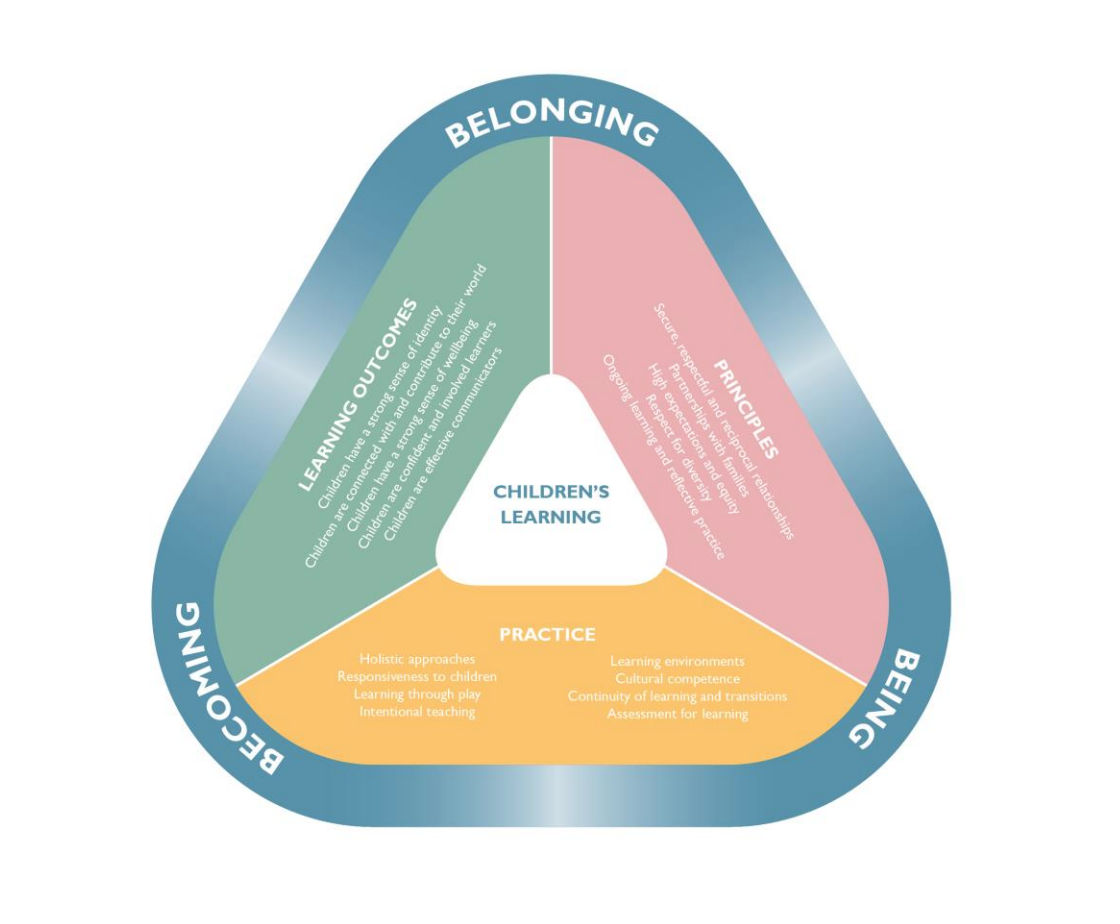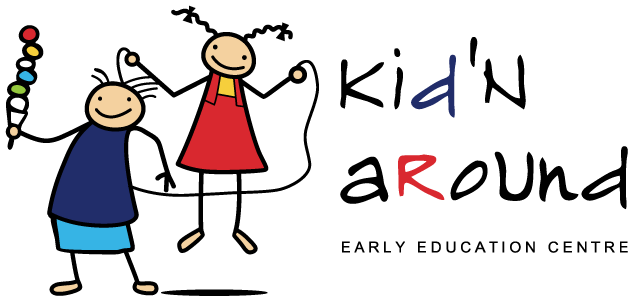Belonging, Being & Becoming
At Kid’n Around we realise that optimal learning develops through relationships with families. We believe that children learn best with a positive connection with families, community, children’s culture and place.
To help children construct their own identities, early childhood education focus on a child’s sense of belonging which encourages formation of personal identity and who children are within the world.
Educators focus on a child being in the moment and absorbing the present. We recognise that ‘childhood is a time to be, to seek and make meaning of the world” (Belonging, Being and Becoming, p.7). At Kid’n Around we instil a curiosity for life-long learning by nurturing children’s imagination and respecting their meaningful conversations.
As children evolve and create new meanings and identities in the world they will be supported by qualified and experienced educators to become their own person and form new relationships and skills.
Kid’n Around follows the approved learning framework under the National Quality Framework for Young Children from Birth to Five Years.
The Early Years Learning Framework is part of the Council of Australia Governments (COAG) reform agenda for early childhood education and care and is a key component of the Australian Government’s National Quality Framework.
The EYLF has a universal vision for “All children to have the best start in life to create a better future for themselves and the nation” (Belonging, Being and Becoming, pg.5).
The EYLF is an Early Childhood curriculum framework leading early childhood educators to develop quality early childhood education programmes. The framework’s structured guidelines prompt educators to implement its guidelines to meet the National Quality Standards. Essentially the framework supports educators to better their practice to increase the learning outcomes for children.
The EYLF contains principles, practices and learning outcomes to support children from birth to five years as well as their transition to school education. The framework has a strong emphasis on play-based learning as play is the best vehicle for young children’s learning. The framework also prioritises the importance of communication, exploration of identity, establishing community links, emotional well-being, instilling lifelong learning and focusing on social development.
Elements of the EYLF
The principles and the practice of the EYLF convey the highest beliefs for children from birth to five years and underpin the educational practices to promote children’s learning.
The following five principles of the EYLF reflects a mixture of relevant childhood theories, current investigation of children’s learning and the early childhood discipline.
- Secure
- Respectful and Reciprocal Relationships
- Partnerships
- High Expectations and Equity
- Respect for Diversity
- Ongoing Learning and Reflective Practice

Practices of EYLF
The following practices of the EYLF support educators in making informed pedagogical decision to better the learning outcomes of children.
- Holistic Approaches
- Responsiveness to Children
- Learning through Play
- Intentional Teaching
- Learning Environments
- Cultural Competence
- Continuity of Learning and Transitions
- Assessment of Learning
Educators use the principles and practices together with the learning outcomes of the EYLF as a basis to make informed pedagogical decision for individual children learning.
Learning Outcomes
The Learning Outcomes of the EYLF are
- Children have a strong sense of identity
- Children are connected with and contribute to their world
- Children have a strong sense of wellbeing
- Children are confident and involved learners
- Children are effective communicators.
Our educators use these learning outcomes to help your child develop holistically. While the learning outcomes are broad, they recognise that children have different learning preferences, capabilities, are diverse and engage with the world in their own way. Educators always plan learning experiences considering the child attaining the desired learning outcome.
